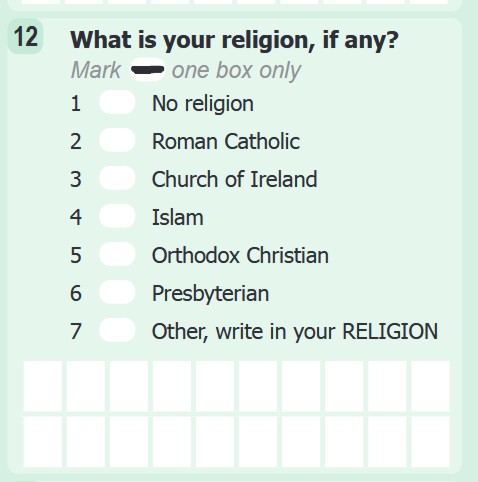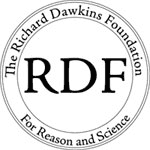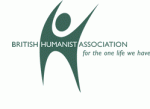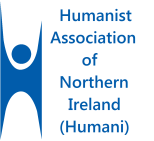The Census of all the people in the Republic of Ireland is to be on Sunday 03 April 2022.
Question 12 is about the religion of each person.
The Mid-West Humanists, with the Humanist Association of Ireland, and with Atheist Ireland, ask all people who do not practise any religion to choose the option “No Religion” when replying to Question 12.
Here is a copy of Question 12, in the Census of 2022.

The Central Statistics Office have improved the question from the version of several past Censuses, to some degree. It is now more probable that a person who has no religion will choose the appropriate answer, because “No Religion” is now the first option.
For your information, we show the 2016 version of Question 12 at the end of this article, with our view why the 2022 version has improved Q12 somewhat, and how it should be improved further.
Why it is important to answer Question 12, Religion
Our Government uses information about the people, from the Census and from other sources, to help to plan how government services are distributed and administered – health, education, justice, social services, and others.
If the number of people said to have “No Religion” in the Census is close to the actual number in Ireland, the Census will have done the maximum to have Government services changed so as to be good and fair to people with no religion, as well as to people of all the various religions.
Some important errors to avoid at Question 12
The partly improved 2022 version of Question 12 most probably will lead to a larger proportion of people being marked as having no religion, even if the actual proportion has not increased. (The actual proportion surely has increased: Ireland has in fact become more secular than it was in 2016). Yet people could still make some mistakes.
In Question 12 in the Census of 2016, the open box where a person can write the name of their religion (“Other”), was before “No Religion”. Some people wrote “Atheist”, “Humanist”, “Jedi”, and some other words that are fairly surely not religions. At least those who wrote “Atheist” and “Humanist” had no religion, but they were not included in the number of people with no religion that the Central Statistics Office announced (the results of the Census).
We do not know if some of those who wrote “Jedi” and similar words had no religion, or if they were making a joke.
To maximize the number of people that the Census will say have no religion, that is, to report the number truly – if you are not religious, do not write in the box for “Other” religions. Mark the box “No Religion” when replying to Question 12.
If another person in the household is completing the Census form
An official person delivers the Census form and collects it after the Census day. This person is called the Census enumerator. The enumerator arranges one person per household to fill in the form. This person is then called Person No 1.
If you are not Person No 1, that person might enter some or all of the information about you without asking you, or incorrectly. We believe that some persons who were Person No 1 in past Censuses wrote the religion that he or she thought was the religion of other persons in the household, when that was not the other person’s true religion (or irreligion).
If you are not sure that Person No 1 will respond to Question 12 as you desire, you can ask the enumerator for a Census form for you alone. This is your right in any case, if you want to keep matters private, and you do not have to prove to the enumerator that the Person No 1 will record your details incorrectly.
Why it is important to mark “No Religion”
Many of our Government’s services have been and still are administered with a bias towards religion, with a bias towards all the people who live in Ireland having some religion, and in many instances with a bias as if nearly all the people belong to the Roman Catholic Christian religion.
The Mid-West Humanists have since 2013 campaigned to various branches of our Government to abandon these biases in particular aspects of the Constitution, laws, and methods of administering services. It has been quite difficult to convince TDs and Senators, and to convince the Constitutional Convention (2013), whom we met, that there is any need to make the Constitution, laws, and services secular.
Ministers and TDs are a lot more open to adapting how the Government serves the people, to fit with people of new religions (that is, religions that are only starting to have many adherents in Ireland), than they are to fit with people with no religion. In the Census of 2016, there were 468,400 persons (just under 10 percent of the population) recorded as having no religion, and this was greater than the number recorded with all the religions, other than Roman Catholic, together. Yet adaptations to the religions that are newer to Ireland seem to interest our Government more.
The Mid-West Humanists, with the Humanist Association of Ireland, and with Atheist Ireland, ask all people who do not practise any religion to choose the option “No Religion” when replying to Question 12.
Question 12 in the past, how it was faulty, and how to improve it fully
Here is a copy of Question 12, in the Census of 2016.

The question is “What is your religion?” This biases a person away from considering if he or she has no religion. The new question in 2022 allows that a person may not have any religion, but it still has a bias that to have a religion is the normal or usual (default) state of a person.
The option “No Religion” was the last option in 2016. People who are asked to pick one of several printed options give some attention to the first option, and they consider whether it is correct, and then a smaller amount of attention to the next option, attention reducing further as the person scans down the list. Often a person becomes tired of reading the options. This leads to a bias towards options nearer the start of the list.
We are fairly sure that, in all the years up to and including 2016, this led to people who were not really religious choosing one of the religions at the top of the list. The name of the religion may have reminded people of the religion of their childhood, and the person now had an option which they could mark, before the person saw that “No Religion” was available at the end of the list.
Accordingly, the Mid-West Humanists, as Atheist Ireland and the Humanist Association of Ireland, are fairly sure indeed that the number of people who chose “No Religion” in the Census of 2016, as well as in several previous Censuses, was substantially less than the true number of people with no religion.
While the version of the Religion question in the Census of 2022 is better than that in 2016, the sensible version would split it into 2 questions –
Q12a – Do you practise a religion? No [ ] Yes [ ]
If you answered Yes to Q12a-
Q12b – What is your religion? – Write the name of the religion here [ ]
Filed under: announcements, Census, constitution, education, Health Services, political issues, Secularism | Tagged: secularism, society | Leave a comment »








































